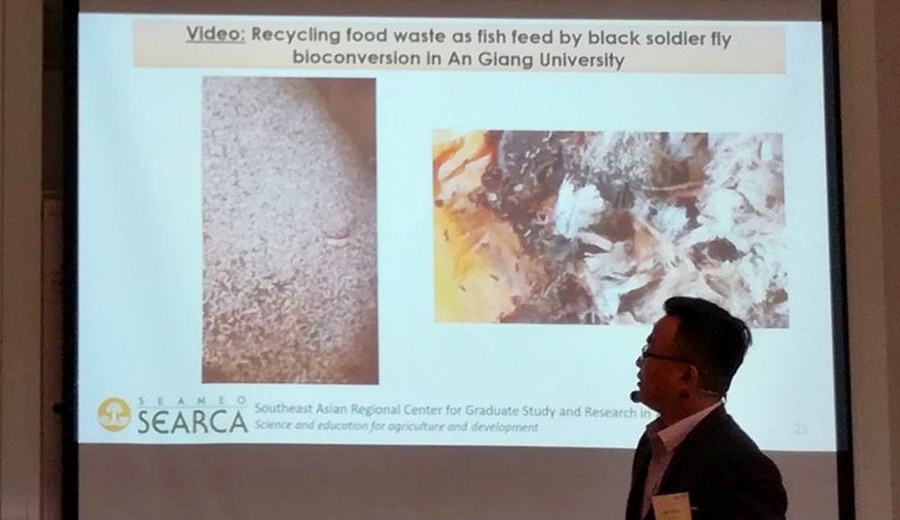At the Conference, Mr. Le Ngoc Hiep represented his team to present the paper titled 'A study on local people's perception of food waste management and recycling strategies for fish feed: A case study of An Giang province, Vietnam.' His presentation began by showing the problems related to food waste such as: environment, climate, water, land and biodiversity, and an economic quantification based on producer prices. In addition, Mr. Hiep mentioned that fish meal and trash fish (marine origin) still remain the major dietary protein sources for aquaculture fish and shrimp, which increases feed costs, and is not a sustainable long-term feeding strategy. In order to resolve these problems, food waste could be recycled as fish feed because of high nutritional value. The objectives of his study were to: (1) provide the baseline of food waste composition, (2) assess generation rates of food waste, (3) determine chemical composition of food waste, (4) evaluate local people's perception of food waste management and recycling, and (5) recommend strategic plan to manage and recycle food waste further as fish feed. The findings of the study, as presented, were well-received by the audience and considered as tools for agricultural transformation and rural development.
Agri4D 2017 Conference was a two-day event for researchers and professionals working with and/or interested in agriculture for development, including senior scientists and experts on social and political science, soils, crops, natural resources, animal science, economics, forestry, horticulture, and veterinary medicine. The conference was hosted by the Swedish University of Agricultural Sciences (SLU), Agricultural Sciences for Global Development (SLU Global), Swedish International Agricultural Network Initiative (SIANI), Forest, Climate, and Livelihood research network (Focali.se), Chalmers University of Technology, Linköping University (LiU), Lund University, University of Gothenburg, Stockholm Environment Institute (SEI), Stockholm International Water Institute (SIWI), and the Swedish International Development Cooperation Agency (SIDA). The conference was attended by more than 150 participants globally and featured 56 papers on the following sessions: Land – under pressures or dynamic changes; Forests for Food Security – in the light of equal rights and sustainable resource management; Fish farming for food security, nutrition, and poverty reduction; Knowledge-based Bio-economies -Tools for agricultural transformation and rural development; Water in Transforming Landscapes; Urban and peri-urban agriculture, livelihoods, and food and nutrition security in the Global South. (Le Ngoc Hiep)
